Avocados have become a trendy food staple, praised for their creamy texture and rich flavor. Whether you’re spreading it on toast, blending it into a smoothie, or eating it on its own, this fruit adds a nutritious boost to your diet. But how many calories are in an avocado, and how does it fit into a balanced diet?
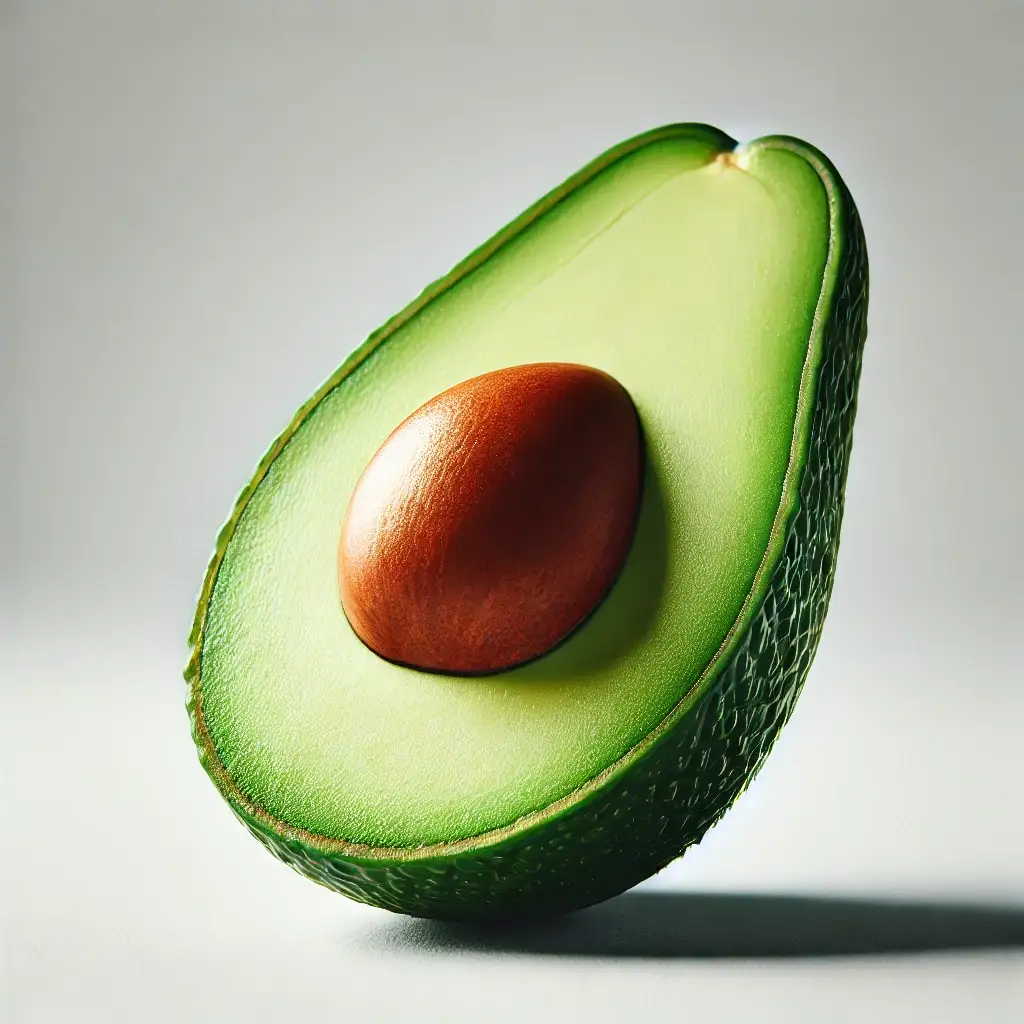
Let’s dive into the details of avocado nutrition and its health benefits to help you make the most of this green gem in your meals.
How Many Calories Are in an Avocado?
When it comes to counting calories in avocados, it depends on the size and variety. A typical Hass avocado, which is the most popular variety, contains around 240 calories.
However, it’s important to break this down by portion size, as not everyone eats a whole avocado in one sitting.
- Half an avocado: Roughly 120 calories.
- A quarter of an avocado: About 60 calories.
These calories primarily come from healthy fats, making the avocado a nutrient-dense choice. The key here is moderation—eating an avocado in reasonable portions can provide you with essential nutrients without going overboard on calories.
Why Are Avocados Considered Healthy Despite Their Calories?
It’s easy to focus on calorie content and think that avocados might be too calorie-dense to be healthy. However, not all calories are created equal. The majority of the calories in an avocado come from heart-healthy monounsaturated fats, which have been shown to reduce bad cholesterol levels and improve heart health.
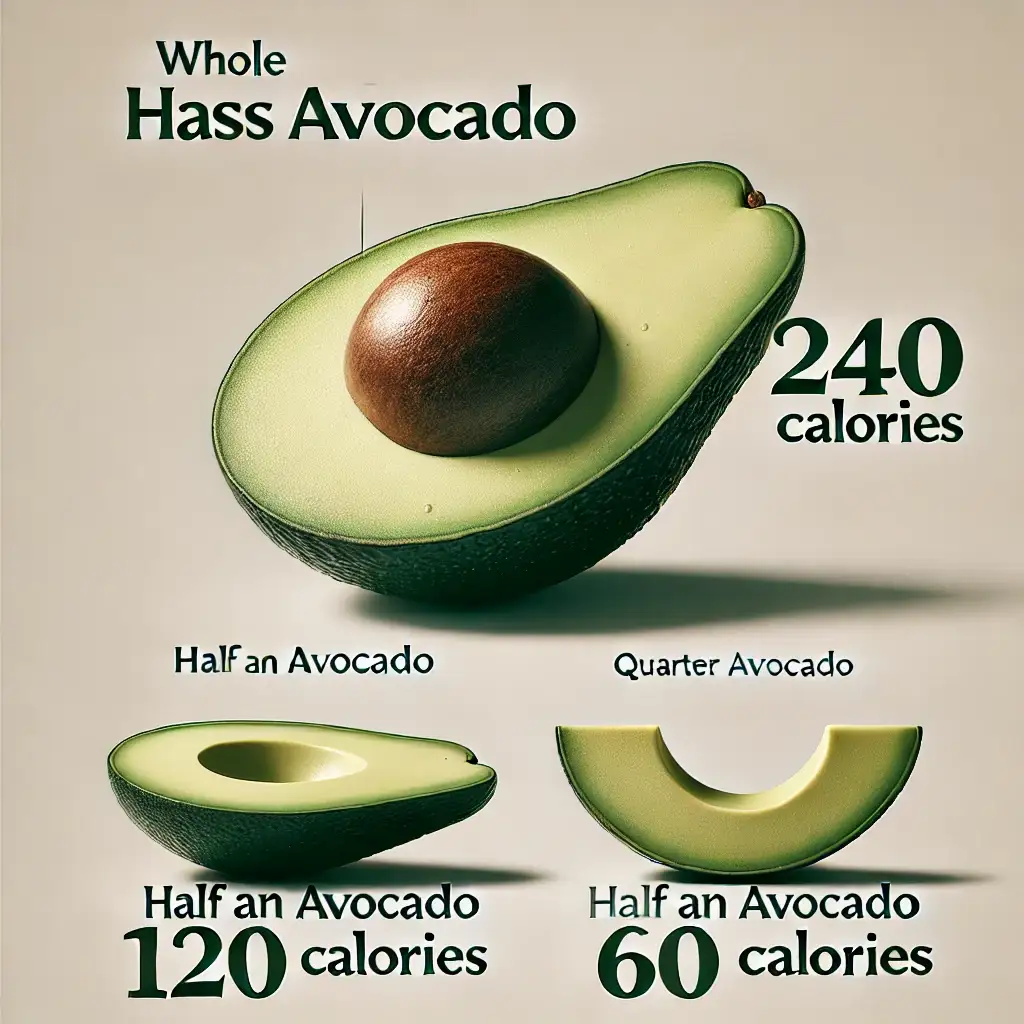
In addition to their beneficial fats, avocados are packed with fiber, vitamins, and minerals. Here’s a quick look at what you get from one medium avocado:
| Nutrient | Amount per medium avocado |
|---|---|
| Calories | 240 |
| Fiber | 10 grams |
| Potassium | 690 mg |
| Vitamin C | 15% of the daily recommended value |
| Folate | 20% of the daily recommended value |
As you can see, avocados are more than just a source of calories. They’re also loaded with nutrients that contribute to a well-rounded, healthy diet.
How Does an Avocado Fit Into Your Daily Calorie Needs?
Your daily calorie needs depend on various factors, such as age, gender, activity level, and health goals. For someone on a 2,000-calorie-a-day diet, an avocado can be a significant part of their daily intake but still leaves plenty of room for other foods.
Here’s a sample breakdown:
| Meal | Calories |
|---|---|
| Breakfast (1/2 avocado on toast) | 120 |
| Lunch (salad with 1/4 avocado) | 60 |
| Snack (sliced avocado with seasoning) | 60 |
When enjoyed in moderation, avocados are an excellent way to add flavor and nutrition to your meals without overwhelming your calorie intake.
Health Benefits of Eating Avocados
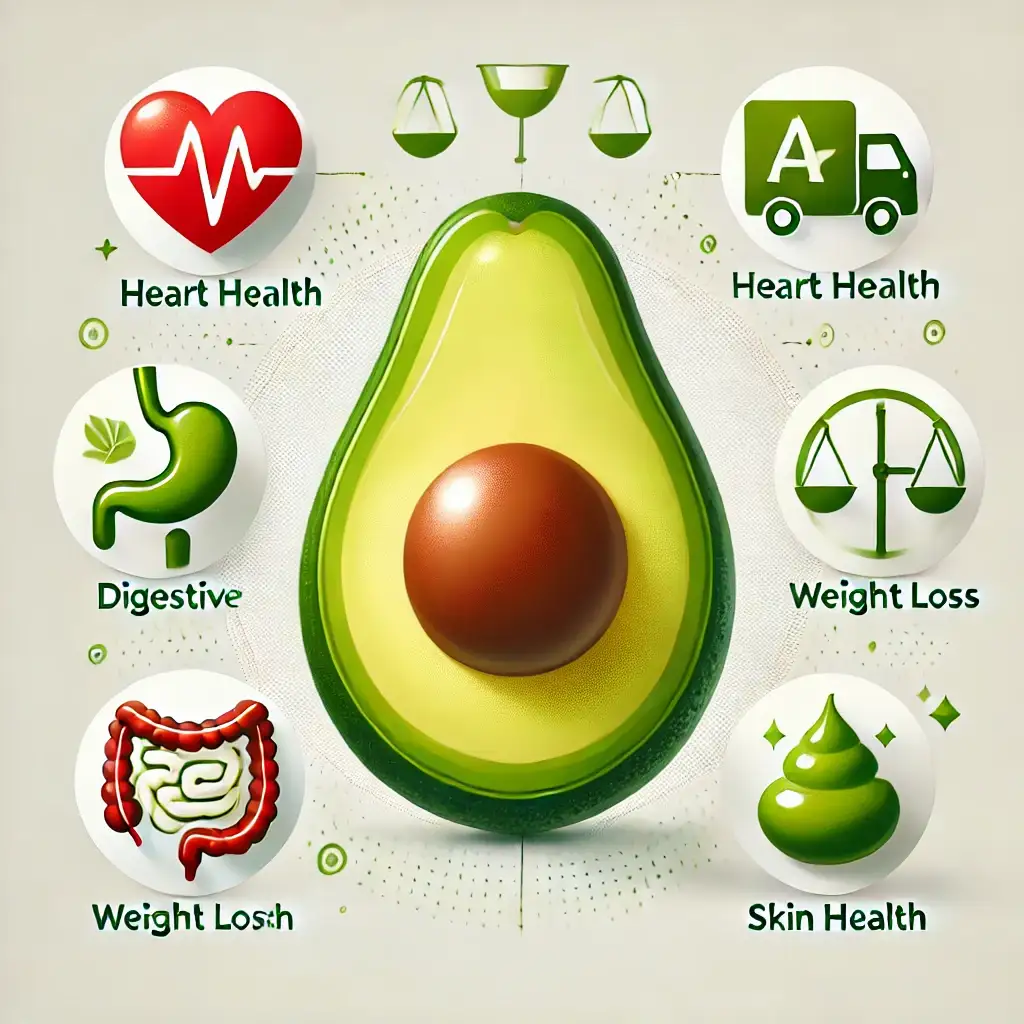
Beyond their calorie content, avocados offer a range of health benefits:
- Supports Heart Health: Thanks to their high levels of potassium and healthy fats, avocados can help maintain proper blood pressure levels and reduce the risk of heart disease.
- Aids in Digestion: The fiber content in avocados promotes a healthy digestive system, keeping things running smoothly and preventing constipation.
- Promotes Weight Loss: While avocados are calorie-dense, the combination of healthy fats and fiber can help you feel fuller for longer, reducing the likelihood of overeating throughout the day.
- Boosts Skin Health: The vitamins in avocados, such as vitamin C and E, help maintain skin elasticity and protect against oxidative damage from the sun and pollution.
How to Incorporate Avocados Into Your Diet
Avocados are incredibly versatile, and there are countless ways to enjoy them without overloading on calories.
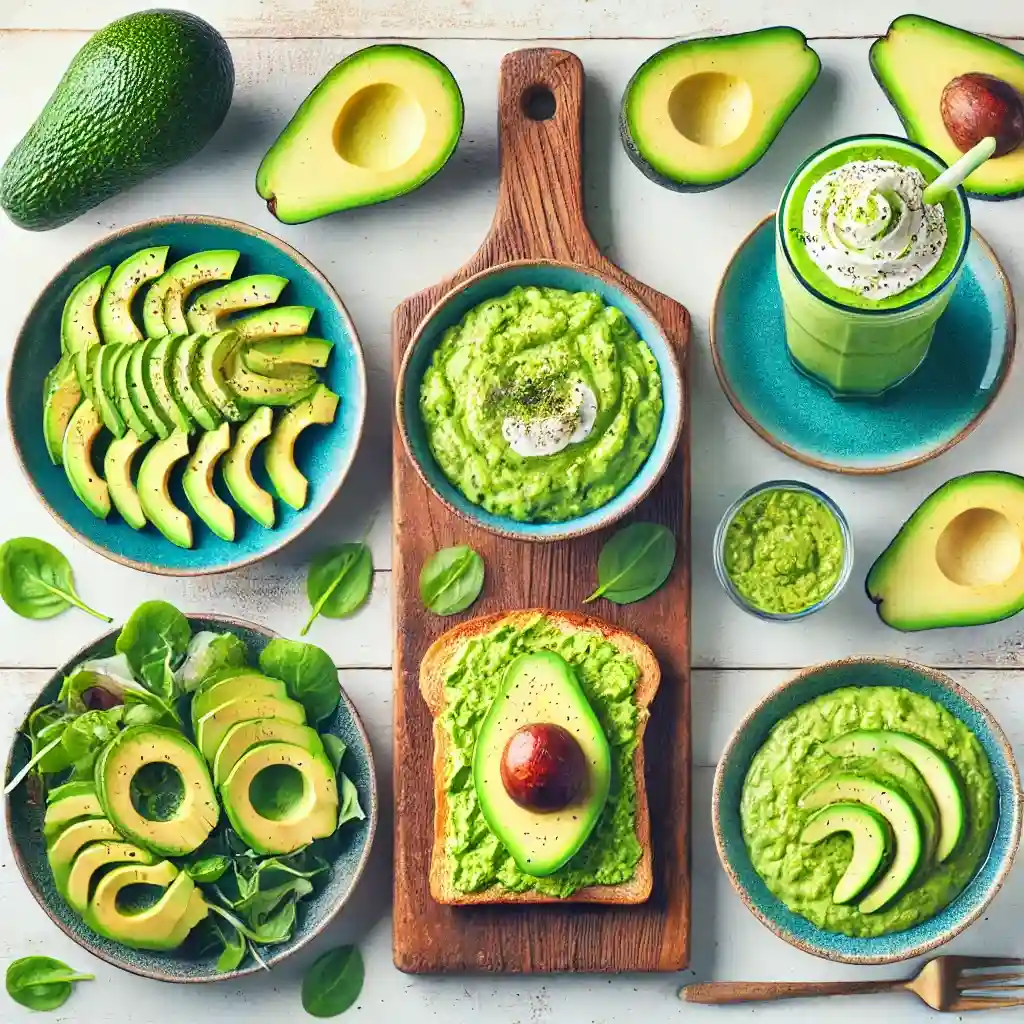
Here are some simple ideas:
- Avocado Toast: Spread half an avocado on a slice of whole-grain toast, sprinkle with some salt, pepper, and chili flakes for a quick, satisfying breakfast.
- Smoothies: Add a quarter of an avocado to your morning smoothie for an extra creamy texture and a dose of healthy fats.
- Salads: Toss diced avocado into your favorite salad to give it a creamy element and balance out the crunch of fresh veggies.
- Avocado Dip: Blend an avocado with some lemon juice, garlic, and olive oil for a delicious, nutrient-packed dip for veggies or whole-grain crackers.
Comparing Calories in Avocado to Other Popular Foods
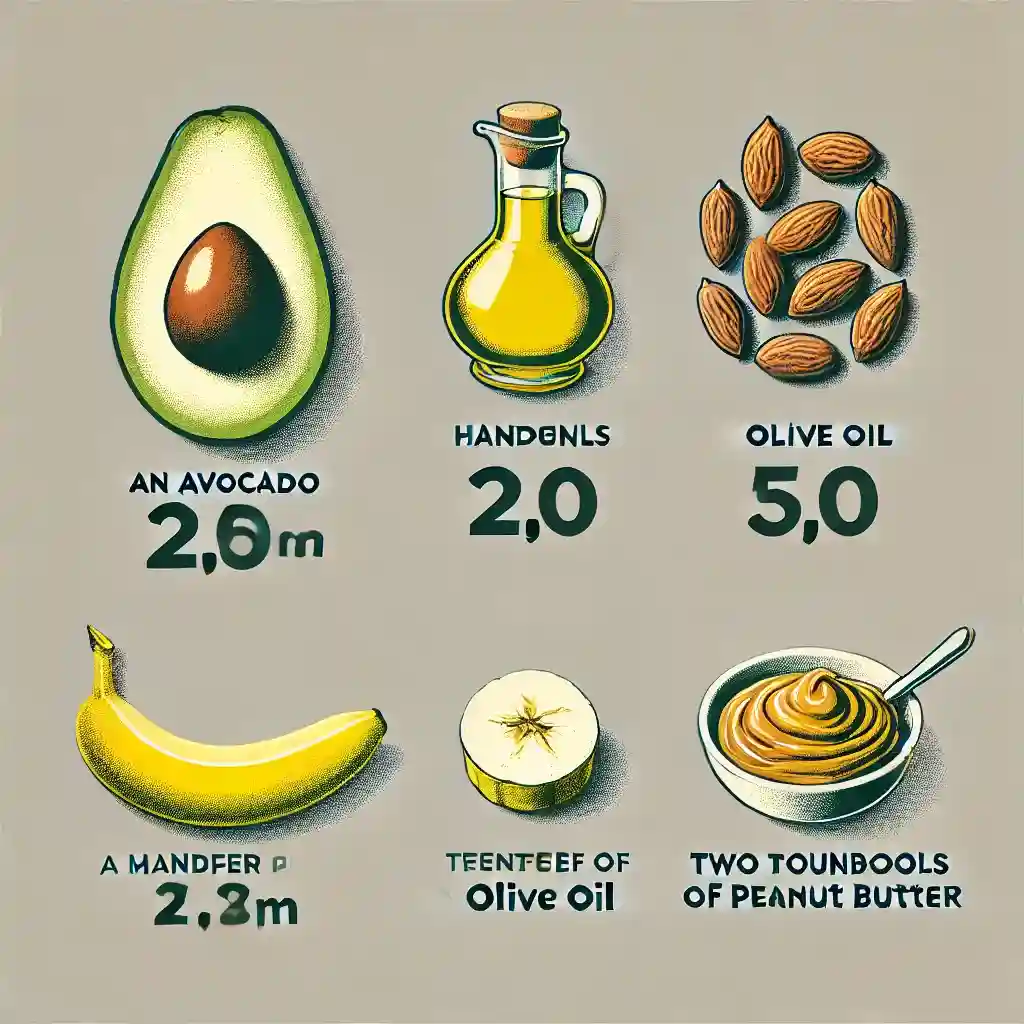
Let’s see how avocado stack up against other common foods often labeled as healthy:
| Food | Serving Size | Calories |
|---|---|---|
| Almonds | 1 ounce | 160 |
| Olive oil | 1 tablespoon | 120 |
| Banana | 1 medium | 105 |
| Peanut Butter | 2 tablespoons | 190 |
As you can see, avocados have more calories than some other snacks, but they offer far more nutrients per bite, making them worth the calorie count.
How to Store Avocados for Maximum Freshness
One challenge with avocados is their tendency to go from ripe to overripe quite quickly. Here are a few tips to keep your avocados fresh for longer:
- Unripe avocados: Leave them on the counter to ripen naturally. Once they give slightly to pressure, they’re ready to eat.
- Ripe avocados: Store them in the fridge to slow down the ripening process. They should last an extra 3-4 days this way.
- Cut avocados: To prevent browning, brush the exposed flesh with lemon juice or olive oil, then store it in an airtight container in the fridge.
Avocados and Keto: Are They a Good Fit?
The ketogenic diet is high in fats and low in carbohydrates, making avocados an ideal food for anyone following keto. With almost no carbs and plenty of healthy fats, they can help you meet your fat intake requirements while keeping carbs in check.
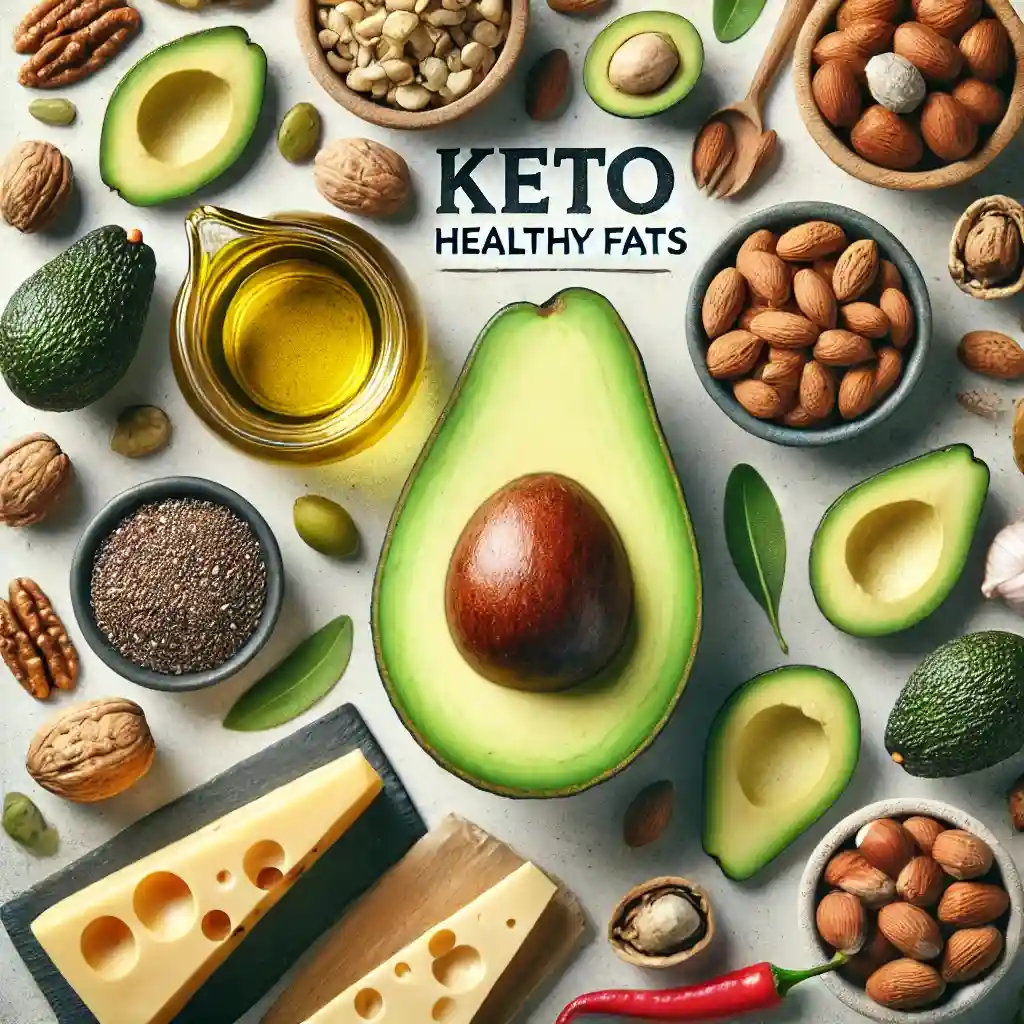
One thing to remember, though, is that portion control still matters. Even on a high-fat diet, it’s easy to overeat calorie-dense foods like avocados, which could hinder weight loss progress.
Conclusion
Avocados are a nutritional powerhouse, offering far more than just calories. Their healthy fats, fiber, and vitamins make them a valuable addition to any diet, whether you’re looking to improve heart health, support digestion, or simply enjoy a delicious, versatile ingredient.
By paying attention to portion sizes and using them creatively in meals, you can reap all the benefits without overdoing your calorie intake.
Related Posts:
- What is the Paleo Diet
- Why the DASH Diet is Ranked
- The Essential Keto Cookbook – An Informative Introduction
- The Ultimate Guide to Low Carb Indian Foods for Weight Loss and Health
- Dairy-Free Diet
- Diet That Precludes Grains And Dairy Crossword Clue
FAQs
How many calories are in a small avocado?
A small avocado typically contains around 160-170 calories. It’s still packed with nutrients, but it’s easier to manage portion sizes with a smaller avocado.
Are there fewer calories in a Hass avocado compared to other varieties?
Hass avocados tend to be higher in calories compared to varieties like Florida avocados. Hass avocados are smaller but have a richer, creamier texture, leading to more calories per bite.
Can avocados help with weight loss?
Yes, despite their high-calorie content, avocados can aid weight loss due to their combination of healthy fats and fiber, which promote fullness and reduce cravings.
What are the best ways to eat avocado without consuming too many calories?
Stick to smaller portions, like using a quarter or half of an avocado in your meals. Incorporate them into dishes like salads or toast, where you can balance out the calories with other low-calorie ingredients.
How many calories are in avocado oil?
Avocado oil contains about 120 calories per tablespoon, similar to olive oil. It’s a healthy fat that can be used for cooking or as a dressing.
Can I eat avocado every day?
Yes, you can enjoy avocados daily as part of a balanced diet. Just be mindful of portion sizes to avoid consuming too many calories.